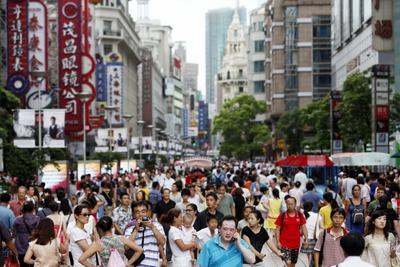That intensifies the problems in international economic diplomacy, as the current account surpluses and China’s huge international reserves symbolise the competitiveness of the Chinese economy to protectionists and others in the United States and Europe who see it as a direct product of undervaluation of the Chinese currency. For another, it raises the spectre of inflation getting out of control unless measures are put in place to slow the pace of growth and suppress the potential of rising foreign earnings sparking a round of inflationary spending like that which got under way between 2004 and 2008. Data released a week ago showed a surge in Chinese inflation, highlighting the threat to the global economic recovery as emerging economies like China and India overheat and commodity prices soar. Consumer prices in China increased 5.4 per cent year-on-year in March, their biggest jump since July 2008.
In this week’s lead essay, Yongsheng Zhang, one of China’s leading new generation of economists from the Development Research Centre, observes that the growing concerns about the Chinese economy and calls for a new development model are driven by two things: the need to avoid a potential economic crisis, and the need to deal with carbon reduction. ‘Behind China’s average 9.8 per cent GDP growth’, he argues, ‘lie a host of issues that have the potential to lead to serious problems in the future’.
Trade surpluses have resulted in huge foreign reserves, excess liquidity, high inflation pressure, and bubbles in the capital and property markets. High GDP growth has not brought about an equivalent increase in welfare across society, and public services are hugely overloaded. The regulatory system and entrenched monopolies of state owned enterprise distort industry and waste resources, favouring industrial output and choking off the delivery of services across the health, education, finance and banking sectors. Zhang’s conclusion is that ‘there is now a huge and growing level of risk associated with government debt, particularly local government debt’.
If these issues are not dealt with they will put cumulative burdens on the economy until they become untenable (through growing debt at all levels of government). As the scope for easy industrial catch-up runs out and growth slows down, these currently hidden problems will become more apparent, like they did for Japan at the end of the 1980s.
Zhang also makes clear that dealing only with the problems of unbalanced growth is not enough. China, like all other countries, needs to effect a huge transformation to low-carbon growth, both to lower emissions and to deal with fossil fuel depletion. The 12th Five Year Plan sets a target for reduction in carbon intensity by 17 per cent, and an increase in the share in consumption of renewable energy options. This is in the broader context of China’s 2020 goal of reducing carbon emissions by 40-45 per cent.
When Australian Prime Minister Julia Gillard arrives in Beijing this morning, she will, among other things, be looking for opportunities to share the burden of this risk with Chinese leaders. Zhang argues that the cost of transition to a low carbon economy will be lower for China than for advanced economies (like Australia), as it is not locked into a high carbon model to the same extent. He says that China does not face a competitive disadvantage relative to advanced economies in ‘green’ industries. Advanced green technology is available readily from developed countries for adoption by a dynamic economy like that of China, and it has the opportunity to continue to feed growth with new renewable energy industries.
If Ms Gillard engages her host on the issue, China’s ambitions for carbon reduction will play into her ability to sell the Australian government’s carbon reduction scheme to the swag of Australian business leaders who are accompanying her and the wider Australian community back home.
Peter Drysdale

